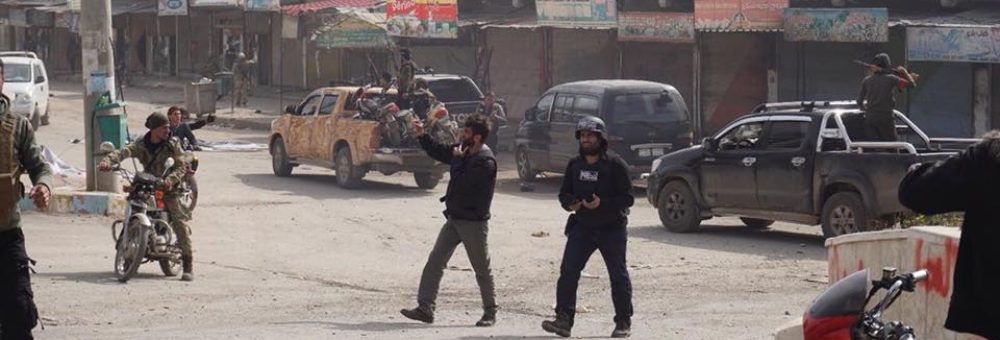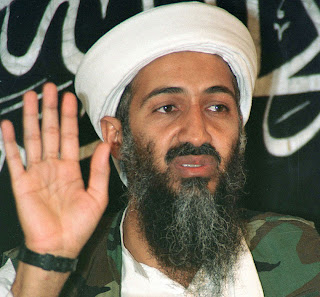Is the BBC as impartial, free and fair as they claim. I choose to disagree!
Guest post by Ishmahil Blagrove
After I initiated an inquiry into the way in which the BBC distorted my documentary “Blood Diamonds (2001)”, deceitfully reneged on a signed contract and jeopardised the lives of several contacts on the ground, the BBC’s internal investigation overseen by Mark Damazer, ruled in their own favour against the overwhelming physical evidence and witnesses that I had. Before initiating the inquiry they attempted to bribe me into accepting the distorted narrative of the story, “Don’t worry Ishmahil, there will be more work for you.” When I insisted that I wanted to stick to my contract, someone came and told me “If you rock the boat, as a freelancer you will be black listed”. I still have all the evidence and correspondences with the BBC and perhaps one day I will post it up. I had to decide if I wanted future employment or to stick with my values and principles – I chose to stick with my principles. I have no confidence in the BBC or their impartiality in conducting or commissioning such investigations. THEY ARE CORRUPT!
The BBC agreed that we would be able to fuse the two stories, explain the history of the war and that diamonds were being used to fund the conflict. The BBC were obsessed, as were most of the Western media with this patronising view that the people were simply fighting over diamonds. In every conflict protagonists will use the resources at their disposal to acquire weapons, but the Western media were only obsessed with diamonds. The rebels sold cocoa, timber or what have you, but “Blood Cocoa” or “Blood Timber” just wasn’t as catchy as “BLOOD DIAMONDS”.
The BBC cameraman who accompanied me at times refused to film certain scenes, such as when we were coming out of the rebel held territory of Tongo and bumped into a patrol of British soldiers hundreds of miles away from their zone and in an area where they had no mandate to be. We had heard rumours that the British had been training the CDF (a militia) in contravention of the Abujah Agreement which insisted that both sides desisted from fighting. I told him film! He ran into the bush made a satellite phone call back to the BBC and then came back and said, I’m told we need to get more diamond stuff first.
The BBC continually frustrated me. On another occasion one of my informants at the UN called me and said that 4 CDF fighters had been killed and beheaded by the Rebels and that I should get to the region because they had British made weapons (I’m sure some of you may remember the arms to Sierra Leone scandal). The informant at the UN was a senior figure who was angry with the way in which the British had strolled into the arena of war and refused to come under the control of the UN and were using propaganda to steal the glory from the good works that the UN had done. My contact was an American, but i will not name her for her own protection. She offered to put on a helicopter and fly us to the scene where we could investigate the scene – of course the BBC objected.
I had known the former President, Captain Valentine Strasser who had been overthrown and was living on the fringe of Freetown. I visited him and convinced him to talk and to explain the deal behind using the mercenary company ‘Executive Outcome’ to prosecute the war and some of the other under table deals he had done with the Americans and the British – the BBC didn’t want it.
When I returned to the UK, the BBC said I should stay at home for a couple of weeks and write the story – When I returned back into the office, the BBC had deceitfully cut and arranged the material for the film they wanted and had excluded the material and direction I wanted to take the story. I was contracted as the Producer of the story and therefore it should have been my vision, however, when I began to raise objections the Editor of BBC Correspondent, Farah Durani, a dishonourable and dishonest woman who rose to the position of Deputy Editor solely on the basis of some minorities fast track scheme, came to me and said that my contract had been issued in error, that I was not the Producer of the programme, that I was simply the reporter. I asked her, “If I didn’t produce the programme, then who did? Did it produce itself out of thin air?” Such was the deceptive and dishonest nature of the BBC that caused me to take them to an inquiry. They put out the documentary omitted the credit of Producer. (I have never been able to tell this story, as at the time the internet was not as ubiquitous as it is now. There was no forum to explain how criminal and deceitful the BBC had been. I am glad for this opportunity to unburden myself. Anyone from the BBC who wishes to sue me for defamation, or perhaps FARAH DURANI, please feel free to contact me you bunch of fraudsters.)
Even now the British are seen as the ones who brought peace to Sierra Leone. The UN are rightfully criticised in the often dismal efforts at peace keeping, but in the final years of the Sierra Leone conflict they did an outstanding job. The United Nations Bangladeshi Forces of Battalion 7, were the first soldiers to get into the main rebel stronghold of Kono. The fact that the Bangladeshi’s were humble and came from a culture similar to many in the region who are muslim, made it easier for them to get along with the rebels. They had a laid back attitude and the rebels were often hanging out and chilling at the Bangladeshi’s outpost. They ate with their hands and slept outdoors in bivouacs. (The rebels continually praised the Bangladeshi’s and I know of several instances where the Bangladeshis under the command of a brave Colonel, whom I can’t remember his name but I do have it recorded in my notes of the time, they averted massacres of hundreds of people and put themselves in the middle of raging gun battles.) During peace talks the rebels insisted that they did not want any British soldiers or officials present, as they believed that the British were not impartial but were involved in training the government militia and encouraging the war.
IT WAS THE UN THAT BROUGHT PEACE TO SIERRA LEONE, THE BRITISH CAN REMIX HISTORY AS MUCH AS THEY LIKE, ANYONE WHO WAS INVOLVED IN THE PEACE PROCESS WOULD KNOW OTHERWISE!



